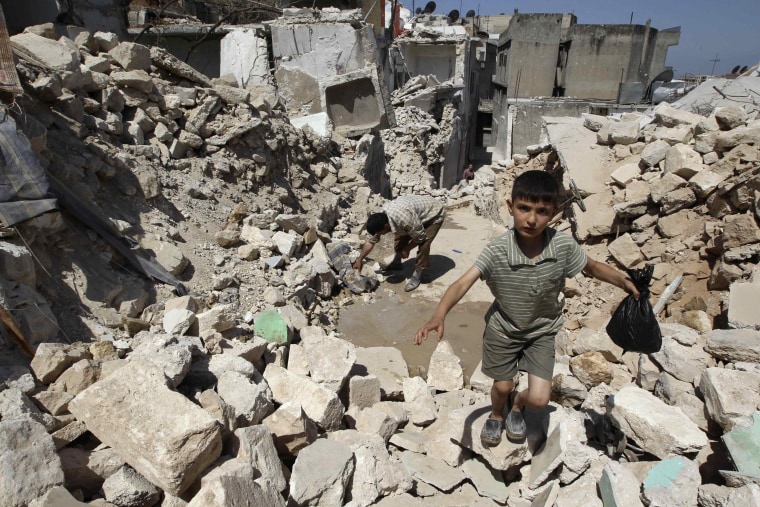Two and a half years into the violent conflict between Syrian President Bashar al-Assad and various rebel groups, the bloodshed is only intensifying, according to a report [PDF] from United Nations investigators. In a survey of events in Syria between Jan. 15 and May 15, the U.N. Human Rights Council’s independent commission on the civil war says it has reached "new levels of cruelty and brutality"—and that there's no reason to believe the carnage will abate any time soon.
“Syria is in a free-fall,” commission chair Paulo Pinheiro told the Human Rights Council on Tuesday. “No one is winning and will not win the war. More weapons will only lead to more civilians dead and wounded.”
Investigators report there are "reasonable grounds" to believe that chemical agents of an unspecified variety had been deployed in civilian areas. The commission found no conclusive proof determining whether one or both sides in the conflict have deployed chemical weapons, but warn there to be a heightened risk in the future.
On top of the risk that nerve gas and other chemical agents could be deployed in civilian areas, non-combatants are continually under attack from all sides of the conflict. More than 70,000 civilians have died, and millions more displaced since the civil war broke out over two years ago. The commission concludes that both Assad's forces and many factions within the rebels are guilty of war crimes against civilians, including torture and rape. Nearly 7 million people, half of them children, are "in need of urgent assistance" due to lack of medical care and food shortages instigated by the conflict.
The commission ends its report with a strong recommendation for a negotiated settlement.
“A diplomatic surge is the only path to a political settlement. Negotiations must be inclusive, and must represent all facets of Syria’s cultural mosaic,” reads the last line of the report.
In the United States, foreign policy hawks such as Sen. John McCain, R-Ariz., have called on the White House to intervene in the conflict militarily.
"I believe we could still intervene by cruise missiles taking out their air on the runway, providing a safe zone protected by patriot missiles," he said last week. "No boots on the ground, no American aircraft overhead.”
President Obama has previously said that the use of chemical weapons on civilians would cross a "red line" and therefore may justify intervention. Last month, the White House said it was supportive of Israeli air strikes within the country.
